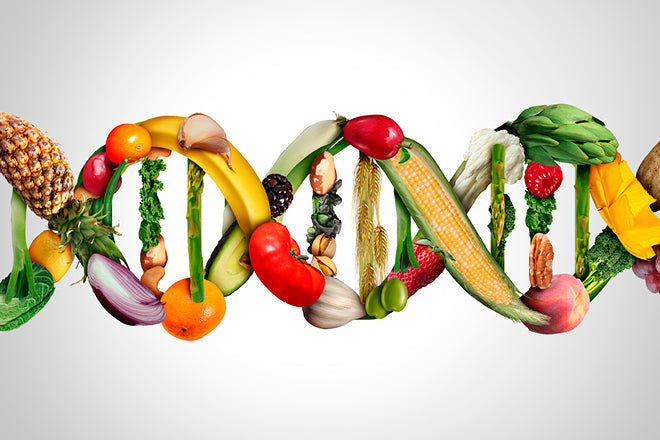We live in an age where (almost) everything can be bespoke – from our skin care regimes to our fitness routines and personalised fashion to our morning coffee. It’s no wonder that individualised genetic testing is making waves in natural health and nutrition. But are these investigations based on real, useable science, or are they just the current trend? Let’s take a look at whether DNA testing offers real, whole-body health solutions or if they’re another passing fad.
What Can a DNA Test Tell You?
Deoxyribonucleic acid (DNA) is the hereditary material in every cell of our bodies that contains the genetic instructions for how we grow, function and repair. These genetic codes, organised in their double helix formation, influence a myriad of aspects of our health, from nutrient metabolism to disease risks, making them a highly useful template for building personalised health plans. The information that DNA tests capture gives us important insight into how our body processes nutrients, detoxifies and responds to inflammation. It also looks at where our health ‘weak spots’ might be, and where we may need to take extra care to reduce our risk of developing certain diseases or build in new strategies for optimal health.
Individualised nutrition is an exciting, developing science, with very promising early research. A 2020 review published in the British Medical Journal showed that personalised dietary advice based on DNA information was more effective at improving eating habits than general nutritional advice across multiple studies. Just some examples of specific genes and their impact on our health include:
- The NRC1 gene influences our ability to regulate cortisol, our main stress hormone, and can act as a biomarker for post-traumatic stress disorder (PTSD).
- The SLC23A1 gene impacts how we transport and utilise vitamin C for antioxidant protection and immune support.
- A gene variant, CYP1A2, can significantly impact how well you can detoxify caffeine.
- VDR, a genetic mutation, can affect your ability to absorb vitamin D, and could help you make informed decisions about supplementing with a vitamin D3 supplement and/or giving a vitamin D supplement to your little ones, as it tends to be hereditary.
Variants in and around the N-methyltransferase (NNMT) gene may mean that your body will respond best to vitamin B3 when it’s supplemented in a specific form, like nicotinamide riboside chloride (NRC).
Using DNA Insights to Customise Nutrition.
Information gleaned from DNA tests can help you and your practitioner tailor your supplements for the best outcomes. Genetic testing can also help you navigate the thousands of natural supplements Australia has to offer, personalising your plan for the best results.
- Variations in the BCM01 gene could show you that your conversion of betacarotene from food into active vitamin A is poor. This could mean that standard multivitamins may not be the best options for you.
- There are several key genetic influences in liver detoxification processes in the body. Understanding more about your pattern could help you target the area, utilising antioxidants, curcumin and other nutrients and herbs to your advantage.
- Understanding your children’s nutrient metabolism via DNA testing could help guide you towards a complete daily vitamin for kids that changes the game for their energy and learning.
- When searching for high-quality vitamins for energy, understanding your genetic variants that impact your energy metabolism and mitochondrial health, could help you choose between a green protein powder for general wholefood support, or more targeted nutrients like CoQ10, magnesium or B-complex vitamins.
Is It Worth It?
Particularly in the quest for finding your essential vitamins for a healthy lifestyle, genetic testing can be a powerful tool. The information and insights gleaned from them can help you refine your choices in food, lifestyle and smart supplementation for optimal results and maximum vitality. So, no. Genetic testing is not just a fad!





 >
>
 >
>
 >
>
 >
>